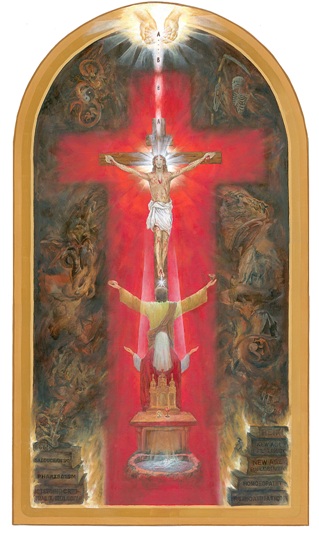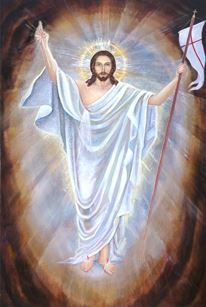The Epiclesis /Part three: The Epiclesis – How to experience the Epiclesis in the Liturgy/
25 November 2018
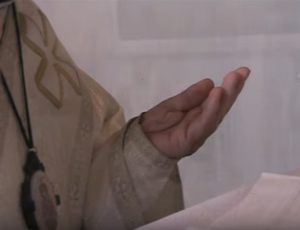 The Epiclesis is the invocation of the Holy Spirit both on us and on the gifts. It has three parts:
The Epiclesis is the invocation of the Holy Spirit both on us and on the gifts. It has three parts:
1) The priest kneels and implores God in a spirit: “Send down the Holy Spirit upon us” (Note: Throughout the Epiclesis, the chorus sings the antiphon: “We praise You…” or there is silence).
God promises through the prophet Ezekiel (37): “Behold, I will send spirit into you, and you shall live.” – We beseech in spirit: Lord, give us the Spirit of repentance, that we may live!
“I will put sinews on you” – Put sinews on us – the gift of prayer!
“I will bring flesh upon you” – Fill us with the power of Your commandments!
“I will cover you with protective skin” – Give us living communities!
“I will put Spirit in you, and you shall live” – Put the fullness of the Spirit in us, that we may live! Ye-ho-shu-aaa
The Epiclesis /Part two: The Holy Spirit and the Epiclesis/
22 November 2018
 Before His death, before sacrificing His body and blood on the cross, Jesus established this sacrifice of the cross to be offered to God for the remission of sins. The symbolic sin-offerings, when the blood and life of the sacrificial lambs was offered in the Jerusalem temple, lost their significance. Jesus is the true Lamb who took on Himself the sins of the world (Jn 1:29). Before the completion of His sacrifice of the cross, Jesus instituted a new sacrifice, which is also a new covenant (Mt 26:26) for the forgiveness of sins. At the Last Supper, He took bread and said, “This is My body, which is given for you.” Then He took the cup of wine and said, “This is My blood of the new covenant, which is shed … for the remission of sins.”
Before His death, before sacrificing His body and blood on the cross, Jesus established this sacrifice of the cross to be offered to God for the remission of sins. The symbolic sin-offerings, when the blood and life of the sacrificial lambs was offered in the Jerusalem temple, lost their significance. Jesus is the true Lamb who took on Himself the sins of the world (Jn 1:29). Before the completion of His sacrifice of the cross, Jesus instituted a new sacrifice, which is also a new covenant (Mt 26:26) for the forgiveness of sins. At the Last Supper, He took bread and said, “This is My body, which is given for you.” Then He took the cup of wine and said, “This is My blood of the new covenant, which is shed … for the remission of sins.”
What about the Apostles? What did they think? They did not understand His words because His sacrifice had not yet been accomplished. During the Last Supper, Jesus also spoke a number of times about the Holy Spirit, “I still have many things to say to you, but you cannot bear them now. However, when the Spirit of truth has come, He will guide you into all truth.” (Jn 16:13)
The Epiclesis /Part one: The Difference between Eastern and Western Liturgy/
21 November 2018
Part one: The Difference between Eastern and Western Liturgy, the Question of Epiclesis
Part two: The Holy Spirit and the Epiclesis
Part three: How to experience the Epiclesis in the Liturgy
Part four: Liturgical Space and Iconostasis
Part one: The Difference between Eastern and Western Liturgy, the Question of Epiclesis
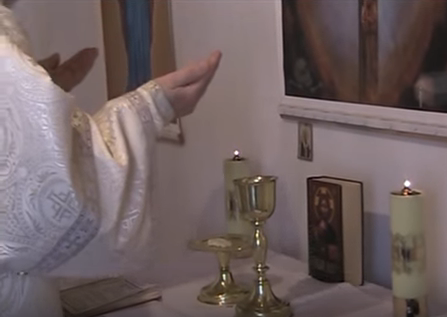 The Eastern Liturgy of St Basil the Great and St John Chrysostom (4th century) contains the Epiclesis. The Epiclesis is also found in other Eastern rites. It comes directly from the Apostolic Tradition.
The Eastern Liturgy of St Basil the Great and St John Chrysostom (4th century) contains the Epiclesis. The Epiclesis is also found in other Eastern rites. It comes directly from the Apostolic Tradition.
What is the difference between Eastern and Western Liturgy? The Western Liturgy was radically modified at the Second Vatican Council. The reform introduced four Canons instead of one. The pre-conciliar Latin Liturgy had no mention of the Holy Spirit in the Canon. The reformed conciliar Liturgy does make mention of the Holy Spirit but it has been inserted before the words of Institution. Unlike the Latin Liturgy, the Eastern Liturgy includes a so-called intense invocation of the Holy Spirit, or the Epiclesis, after the words of Institution.
Prophesy over America! (+video)
October 1, 2018
Archbishop Carlo Maria Viganò, the former Nuncio to USA, has bravely revealed homosexual network crimes in the highest places in the Church. His courageous step has broken the ice.
Nevertheless, the behind-the-scenes psychological and spiritual struggle continues, aimed at self-destruction of America as well as other nations in line with the program of so-called reduction of mankind. The Scripture says, “Our struggle … is against the demonic forces in the heavenly places.” (Eph 6:10f)
PROPHETIC PRAYER FOR THE RESURRECTION OF AMERICA
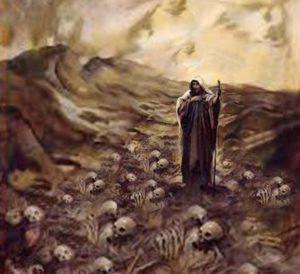 A) The basis – metanoia
A) The basis – metanoia
Before beginning this prayer, confess your sins before God and before yourself:
I am an egoist. When someone admonishes me for whatever error, I take offence. I avoid sound self-criticism. I criticize and condemn others; however, what I condemn I do myself. Whenever I do something good, it just increases my feeling of superiority. I see the speck in my neighbor’s eye, but I cannot see the log in my own eye. I am lazy to seek the truth and to endure suffering for its sake. I am a coward who betrayed the truth and my own conscience many times and, moreover, I set a bad example to many. I take offence, revenge, I am not willing to forgive others. I neglected parental duties in the upbringing of my children.
I do not read the Bible and the lives of saints, and I am not familiar with them. I do not bear in mind the ultimate reality, which is death, God’s judgment and eternity! God has spoken to me through many events, and I am still deaf and blind – I have faced mortal danger several times at work, on the road. I poke into much useless information, but I do not seek to understand the meaning of life and eternity at all.
Christian Prayer – the Opposite of Mantras and Meditations (+video)
3 July 2018
When you will be dying, the most important thing will be to make an act of perfect contrition. This means to admit your sin and sinfulness and to call on the name of God. “Whoever calls on the name of the Lord shall be saved.” (Rom 10:13)
In the hour of your death, your eternity will be decided. Therefore, prepare for it in interior prayer.
How does the Holy Spirit help us during this prayer?
The Apostle answers: “The Spirit makes intercessions for us with groanings which cannot be uttered.” (Rom 8:26)
PRAYER OF UNITY AND POWER /second modified version/
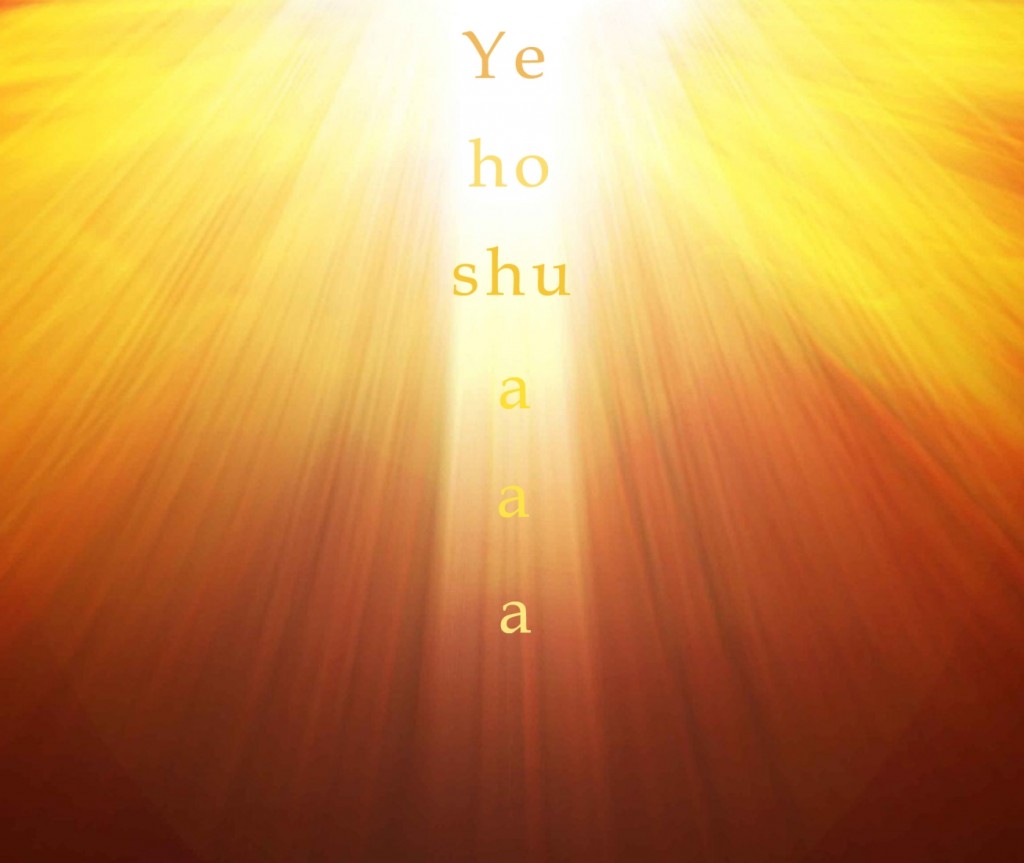 1) Repentance
1) Repentance
(we kneel, hands down by our side)
a) I am self-willed. A self-willed person does not seek the will of God in crucial situations, does not rely on God and breaks the laws of God. Think of a particular case of your self-will and repeat in silence: “I am self-willed, I am self-willed…”
b) Hedonism may be physical – indulgence in eating, drinking, impure feelings, alcohol, drug abuse. Mental hedonism – addiction to television, rock music, internet, human praise… Think of at least one concrete manifestation of your hedonism and repeat in silence: “I am a hedonist, I am a hedonist…”
c) Criticism: Think of a particular situation when you rebelled against God or criticized your neighbors in thoughts or by words, when you regarded yourself higher than all. Repeat in silence: “I am a critic…”
“The wages of sin is death.” Jesus died for me and my sins.
[Explanation: The name of Jesus comes from the Hebrew name Yehoshua*, which means: The Lord is salvation. This is the name of God, a holy name, and the Word of God says that “whoever calls on the name of the Lord shall be saved” (Rom 10:13). In this name the sick were healed and demons cast out (Mk 16:17; Acts 3:16; Acts 4:10). In this prayer of “unity and power”, pronounce slowly and quietly “Ye-ho-shu-” and then breathe out the lengthened vowel “aaa” three times. This helps to abide in God and His Word at the present moment (cf. Joh 15:7)]
Gebetswachen (das unaufhörliche Gebet) /german version/
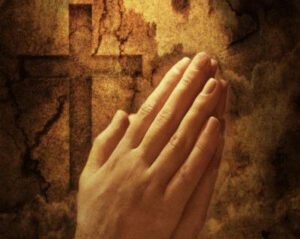 Das Byzantinisch katholische Patriarchat ermutigt Christen, sich in einem unaufhörlichen Gebet an Gott zu wenden. Er wird euch Weisheit und Mut geben, um gegen die dämonischen Mächte der Finsternis zu kämpfen. Er wird eure Nation durch euren Glauben retten. Setzt daher eine Gebetswache ein! Jeder soll ein ganzes Jahr lang täglich das Gebet in Zeit der heiligen Stunde von 20 bis 21 Uhr übernehmen. 23 Menschen werden dann die restlichen 23 Stunden des Tages besetzen und so wird eine Gebetswache, die eine Woche lang beten soll. Danach beten drei Wochen lang drei andere Gebetswachen, ebenfalls jeweils eine Woche lang. Dieser Rhythmus wiederholt sich das ganze Jahr hindurch. Die Wachwechsel findet am Sonntagabend um 21 Uhr statt.
Das Byzantinisch katholische Patriarchat ermutigt Christen, sich in einem unaufhörlichen Gebet an Gott zu wenden. Er wird euch Weisheit und Mut geben, um gegen die dämonischen Mächte der Finsternis zu kämpfen. Er wird eure Nation durch euren Glauben retten. Setzt daher eine Gebetswache ein! Jeder soll ein ganzes Jahr lang täglich das Gebet in Zeit der heiligen Stunde von 20 bis 21 Uhr übernehmen. 23 Menschen werden dann die restlichen 23 Stunden des Tages besetzen und so wird eine Gebetswache, die eine Woche lang beten soll. Danach beten drei Wochen lang drei andere Gebetswachen, ebenfalls jeweils eine Woche lang. Dieser Rhythmus wiederholt sich das ganze Jahr hindurch. Die Wachwechsel findet am Sonntagabend um 21 Uhr statt.
Stellt eine Liste mit 23 Personen für die jeweiligen 23 Stunden der Gebetswachen während des Tages auf und beginnt am Sonntagabend mit dem Gebet des Glaubens. Nach dem Ende der ersten Woche macht man eine Pause für drei Wochen und in der vierten Woche fängt man wieder an. Man tut dies das ganze Jahr über. Gott verspricht euch die Errettung eurer Nation.
ONE HOUR WITH JESUS (CONTEMPLATIVE PRAYER)
“Could you not watch with Me one hour (daily)? Watch and pray.” (Mt 26:40f) Jesus is calling, calling with all His heart! And still, no one has lifted up his voice so often and so many times in vain as Jesus Christ. No call has been so little understood – and this has been even by those who knew Jesus as their Saviour and Lord.
Here we come across the greatest contradiction, namely that people though calling Jesus their Lord do not follow Him. How to understand this? The way of following Jesus may be opened only with one key, with the key of pure love. There is no other key. Therefore the Lord also says that by keeping the First Commandment: “You shall love the Lord your God with all your heart”, one is given the key to all righteous deeds.
The way of following our Lord and perseverance is not possible without love which can be best realized in a contemplative prayer. At least one hour (daily) with Jesus (cf. Mt 26:40).
Holy hour
Almost every Christian family needs spiritual rebirth which is not possible without family prayer. It is time when we can learn in practice to give our life problems to God. For the beginning, it is enough if at least two members of the family begin to pray together every evening, best from 8 to 9 p.m. – this is the so-called holy hour. At this hour, all members of the family turn off the TV, computer, the internet, and pray to God together. The beginnings are the hardest. However, if you overcome the obstacles and develop this holy habit, it will become the source of blessing and strengthen your relationship both to God and to your family. The family will begin to function properly like a healthy organism. It will be formed by the Word of God, by the wisdom of God rather than by the programme of the world which implants lies and amorality in people.
The Orthodox believers in Russia used to have a prayer corner in their houses with an icon of the Mother of God with Christ Child in her arms. This was the place where the family prayed together every evening.
At the end of the holy hour at 9 p.m., the orthodox Catholic bishops and priests give a blessing to all who prayed during that hour.
How to pray?
Jesus said: “Could you not watch with Me one hour? Watch and pray.” (Mt 26:40-41) The essence of prayer is to realize the presence of God – that Jesus sees you, hears you and loves you. First bring your sins to the light of God and call on the name of Jesus (Aramaic Yehoshua) with faith. You can repeat: “Jesus, Jesus, Jesus, have mercy on me!” (Yehoshua, khuonayny) Then it is true about you: “The blood of Christ cleanses you from all sin.” (1Jn 1:7) This is perfect contrition. You will need it at the moment of your physical death, and this is what eternal life in glory with God depends on. If you refuse to repent, you will be eternally condemned! (cf. Lk 13:3)
Prayer guards (continual prayer)
 The Byzantine Catholic Patriarchate encourages Christians to turn to God in continual prayer. He will give you the wisdom and strength in the fight against demonic forces of darkness. Through your faith He will save your nation. Therefore, set prayer guards. Let all pray daily from 8 to 9 p.m. (holy hour) throughout the year. 23 people divide the remaining 23 hours of the day among themselves – this is one prayer guard praying for one week. There are three other prayer guards which pray during the next three weeks – each guard prays for one week. This rhythm is repeated all the year round.
The Byzantine Catholic Patriarchate encourages Christians to turn to God in continual prayer. He will give you the wisdom and strength in the fight against demonic forces of darkness. Through your faith He will save your nation. Therefore, set prayer guards. Let all pray daily from 8 to 9 p.m. (holy hour) throughout the year. 23 people divide the remaining 23 hours of the day among themselves – this is one prayer guard praying for one week. There are three other prayer guards which pray during the next three weeks – each guard prays for one week. This rhythm is repeated all the year round.
The changing of the guards is on Sunday evening, at 9 p.m. Make a list of 23 people who will keep prayer guards 23 hours during the day and start your prayer of faith the following Sunday. After the end of your week of prayers, you have a break for three weeks, and then you continue the fourth week. Pray so all the year round. God promises the salvation of your nation.
Prayer of unity and power /modified version/
1) Perfect contrition (5 minutes)
(position – kneeling)
a) One person says: “I am self-willed.” “A self-willed person does not seek the will of God in crucial situations, does not rely on God and breaks the laws of God.” Think of a particular case of your self-will and repeat quietly: “I am self-willed, I am self-willed…” (1 minute)
b) One says: “Hedonism may be physical – indulgence in eating, drinking, impure feelings, alcohol, drug abuse. Mental hedonism – addiction to television, rock music, internet, human praise…” Think of at least one concrete manifestation of your hedonism and repeat quietly: “I am a hedonist, I am a hedonist…” (1 minute)
c) One says: Criticism: “Think of a particular situation when you rebelled against God or criticized your neighbours in thoughts or by words, when you regarded yourself higher than all.” Repeat quietly: “I am a critic…” (1 minute)
Prayer of unity and power
1) Perfect contrition (5 minutes)
(position – kneeling)
(One says:) “Ephphatha, be opened! I am self-willed. I am a hedonist. I am a critic.”
“A self-willed person does not seek the will of God in serious situations, does not rely on God, breaks the laws of God.” I realize a particular case of self-will and silently repeat: “I am self-willed, I am self-willed…” (1.5 minutes)
(Then one says:) “Hedonism may be physical – indulgence in eating, drinking, impure feelings, alcohol and drug abuse. Mental hedonism – addiction to television, rock music, internet, human praise…” I realize at least one concrete manifestation of my hedonism and silently repeat: “I am a hedonist, I am a hedonist…” (1.5 minutes)
(One says:) “I realize a particular situation when I rebelled against God or criticized my neighbours in thoughts or by words, when I regarded myself higher than all.”
Prophetic prayer for the resurrection of Russia and Ukraine
Part 1
Before beginning this prayer, confess your sins before God and before yourself:
I am an egoist. When someone admonishes me for whatever error, I take offence. I avoid sound self-criticism. I criticize and condemn others; however, what I condemn I do myself. Whenever I do something good, it just increases my feeling of superiority. I see the speck in my neighbour’s eye, but I cannot see the log in my own eye. I am lazy to seek the truth and to endure suffering for its sake. I am a coward who betrayed the truth and my own conscience many times and, moreover, I set a bad example to many. I take offence, revenge, I am not willing to forgive others. I neglected parental duties in the upbringing of my children.
I do not read the Bible and the lives of saints, and I am not familiar with them. I do not bear in mind the ultimate reality, which is death, God’s judgment and eternity! God spoke to me through many events, and I am still deaf and blind – I have faced mortal danger several times at work, on the road. I poke into much useless information, but I do not seek to understand the meaning of life and eternity at all. Like a number in a herd I let myself be manipulated by the mass media which deform rather than form man. I admit neither the poisoned root nor fruit of rock music behind which is the spirit of cynicism, drugs, sexual licentiousness and satanic voodoo.
I do not want to go outside the herd, and so I am not willing to fight for truth and moral values. I am interested in all kinds of philosophies or psychologies, but I do not seek the true psychology and philosophy of the Gospel which is vital in life.
